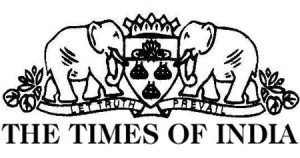Centre cannot divest CBI Director of his power and functions without mandatory approval from Selection Committee: Counsels in Alok Verma case
A three-judge bench comprising Chief Justice Ranjan Gogoi, Justices S K Kaul and KM Joseph heard on November 29 the arguments in detail on the legality of the orders dated October 23, 2018 passed by the Central Vigilance Commission (CVC) and the Department of Personnel and Training (DoPT) that led to the divestment of powers and functions of Alok Verma as CBI Director.
Before arguing on merits of the case, senior advocate Fali S Nariman, appearing for the petitioner Alok Verma, drew the attention of the Court to the Supreme Court’s judgment in Sahara India Real Estate vs Securities & Exchange Board Of India and said that a publication could be postponed in the interest of justice, but there could not be prior restriction. He suggested that the Court could issue a circular for temporarily preventing the publication of a document filed in the court but yet to be seen by the judges.
Senior advocate Rajeev Dhavan objected to this proposition advanced by Nariman. To this, CJI Gogoi said that the Court was not going into this aspect, and let the counsels argue on the merits of the case. Nariman made this submission, the unsolicited one, in context of the publication of the petition filed by former DIG, CBI, M K Sinha that did not go down well with Supreme Court on November 20, 2018 —leading to the adjournment of the hearing of the case for the day.
Also read: Why CBI DIG MK Sinha’s intervening application in the Alok Verma petition is so damning for NSA Doval, Minister Chaudhary, PMO, others
On the merits of the case, Fali Nariman, in the light of the Supreme Court’s judgment in Vineet Narain case, argued that the CVC was entrusted with the responsibility of superintendence over the CBI’s functions only with regard to investigation. He also referred to the aims and objects of CVC Act, 2003. He then drew the attention of the judges to the amendments in Lokpal Act whereby Delhi Special Police Establishment Act was amended to the effect that CBI Director would be appointed by a committee comprising PM, CJI, Leader of Opposition.
Nariman then submitted that the petitioner Alok Verma was appointed by the statutory Committee. Position in law, therefore, is that he has fixed tenure. Even transfer cannot be made without consent of Committee in light of section 4B(2) of DSPE Act, Nariman asserted. He said it isn’t the case that CBI director can’t be transferred. The question is it has to be done with consent of the committee. If there is any proposal to clip his wings, consent ought to have been taken from the Committee. The correct approach for the government if something went wrong was to seek consent of the Committee. The order divesting Alok Verma cannot stand in the absent of consent of the statutory Committee, said Nariman.
At this, Justice K M Joseph asked Nariman the hypothetical question saying if the CBI director is caught red-handed taking bribe, then what would follow? In response, Nariman replied, that the government should write immediately to the Committee. Thereafter, senior advocate Dushyant Dave argued on behalf of the NGO “Common Cause”, and submitted what cannot be done directly, cannot be done indirectly. He argued that CVC supervises prosecutions and investigations, not the CBI officers and therefore in matter of disciplinary proceedings, CVC has no role to play.
Dave then referred to the title of Section 4B of DSPE Act that reads as “Terms and Services of Director”. Dave said that even in other cases such as CAG, judges of High Court and Supreme Court, mechanism is provided and the same cannot be bypassed. Dave concluded by submitting that the selection committee was alone entrusted, both by statute and judicial order in Vineet Narain case, to deal with the tenure of CBI director. He prayed for quashing of the DoPT order divesting Alok Verma from his post as CBI Director and M Nagaswar Rao’s appointment as acting director of the topmost investigating body of the country.
Senior advocate Kapil Sibal appeared for Mapanna Mallikarjun Kharge, who too has challenged the DoPT order divesting Alok Verma of his powers and functions without consultation with the statutory committee of which Kharge is one of the members. Sibal submitted that both the orders passed by the CVC and the DoPT respectively were without the jurisdiction, and hence null and void. He referred to General Clauses Act, 1897 to submit that power to appoint includes power to suspend and remove. Thus, what follows is that consent of the Committee is mandatory. Therefore, CVC and DoPT cannot override statutory provisions of DSPE Act. Even if for the appointment of acting director, consent of the Statutory Committee is mandatory. There cannot be any exception to the requirement of the consent of the statutory Committee, said Sibal.
Also read: By divesting Alok Verma of his post as CBI director, Modi government has mocked the law; ‘fixed tenure’ means functional tenure
Senior advocate Indira Jaising on behalf of intervener DIG, CBI M K Sinha submitted that her client hasn’t challenged the transfer of CBI director Verma. He is before the court with an apprehension of being victimised for supervising investigation against former Special Director, CBI — Rakesh Asthana. He would await the decision of the Court in Alok Verma’s case if the court pleases so.
Senior advocate Rajeev Dhavan appeared for DySP A K Bassi who was the investigative officer in the FIR against CBI Special Director, Rakesh Asthana. Dhavan submitted that the CVC’s power was limited to superintendence related to investigation alone. He stressed on the point that two-year fixed term is to ensure autonomy and that Section 4B of the DSPE Act starts with non obstante clause.
Dhavan asserted that if there were any lacuna in the Act, only the Court could fill it and not the Central government. He requested for purposive interpretation to be given to DSPE Act.
On the other side, Attorney General for India, K K Venugopal appeared on behalf of the DoPT, Government of India and submitted that the appointment authority is Central government because it only appoints CBI director on the basis of the panel recommended by the Statutory Committee comprising PM, CJI and Leader of Opposition. Hence, the final choice lies with Government of India. He added that Statutory Committee recommends a panel of three names. Government appointments one of them as director, and therefore Government of India being the appointing authority can intervene. AG Venugopal claimed that the order of DoPT cannot be construed as transfer order because no facility such as residence, personal staff etc. of Alok Verma have been taken away, and that everything is intact, as Verma is still residing in the government bungalow in New Delhi.
Also read: Supreme Court says CVC report on CBI Dir. Alok Verma ‘uncomplimentary on certain charges’; refuses to share it with Rakesh Asthana
Since the arguments of the day remained inconclusive, the Court adjourned the matter to December 5, 2018. CJI Gogoi said court would go into applications filed by DySP AK Bassi (the investigation officer) and DIG M K Sinha (the supervising officer) in the FIR against Rakesh Asthana and others, challenging their respective transfers. CBI has been asked to keep the transfer files ready for placing before the court. Both Bassi and Sinha were “shunted out” in the wee hours of October 24, 2018 to Port Blair and Nagpur, respectively.
CJI Gogoi has also clarified that court hasn’t yet taken any view on CVC inquiry report, adding that if necessary, the report would be taken into consideration.
The post Centre cannot divest CBI Director of his power and functions without mandatory approval from Selection Committee: Counsels in Alok Verma case appeared first on TheLeaflet | An Imprint of Lawyers Collective.
Thank you for viewing this legal update on Lex Do It. For more legal news and updates do not forget to subscribe and share! Read Original Post





